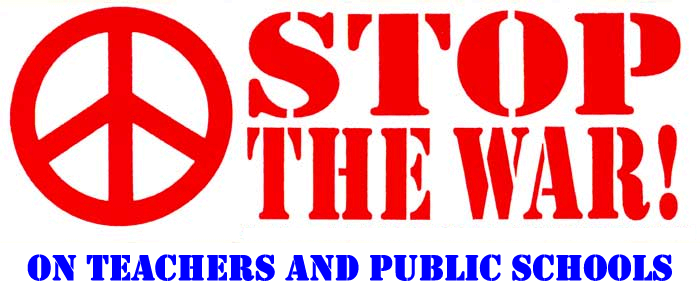‘We’re At War’ Says Organizer Behind Education Protests Sweeping The Country

Keron Blair will look you directly in the eye the whole time he’s talking to you, making sure you absorb every single word he’s saying. His personality seemed a bit reserved when he sat down with me at a Starbucks to discuss Alliance to Reclaim Our Schools, the coalition he is director of, which been responsible for organizing and supporting school protests across the country. But when you listen to his speeches, you hear a minister’s voice.
“Public education…could die on our watch,” Blair said at a recent event for the Milwaukee Teachers Association. “The reality is what drew me to this fight is the shared acknowledgement that we are in fact at war, and what I’ve learned about wartime is that you cannot operate with the same kind of rules. You’ve got to make some wartime adjustments.”
AROS’ ongoing protests have conveyed exactly that level of urgency.
The coalition’s campaign began with a “day of action” where cities across the U.S. protested cuts to public education, the closure of schools in low-income neighborhoods that are predominantly black and Hispanic, the expansion of charter schools, and the proliferation of standardized testing. An estimated 40,000 parents, teachers, and students from over 830 schools in more than 30 cities participated in the February 17 walk-ins. A spokesperson for AROS said the protests were biggest in Los Angeles, Milwaukee, Seattle, and Chicago.
— Michelle Couture (@michellecoutur3) April 14, 2016
AROS believes that schools are ultimately community institutions that help in the fight against poverty by providing support services. The coalition rejects top-down reform from “corporate executives, entrepreneurs or philanthropists,” and wants the voices of teachers, parents, and students to be prioritized in the decision-making process about important changes in education policy, whether local, state, or federal.
Drawing inspiration from other grassroots movements like Occupy Wall Street and Black Lives Matter, Blair easily weaves together various political and economic issues to ensure that AROS is engaged in a broader fight — one focused on narrowing the gap in economic inequality and focusing on the voices of teachers, students, and parents in black and Hispanic communities. Blair says he learned what not to do from Occupy Wall Street as well. He wants to make sure the message isn’t so broad that people don’t see a focused policy agenda.
“I came to AROS because I felt that the fight for education and public schools in this country would be one of the defining fights of the decade,” Blair said.
Blair’s background as an immigrant helped informed his views about the value of public schools. Blair and his mother emigrated from Jamaica to the United States, where he attended Roosevelt Junior-Senior High School in New York. At the time, the school was struggling, but it was important 'We’re At War' Says Organizer Behind Education Protests Sweeping The Country | ThinkProgress:


